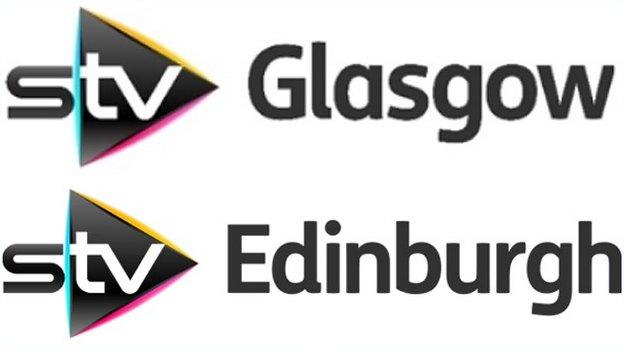STV to launch 'Scottish Seven' news programme
- Published

STV is to launch a news programme combining Scottish, UK and international coverage.
STV News Tonight will be broadcast on a renamed STV2 channel every week night at 19:00 from Glasgow.
It will use STV's resources from across Scotland backed up by ITV's international and UK news teams.
The broadcaster said it would be the first time all news coverage relevant to Scottish viewers would be brought together in a single programme.
STV News Tonight will be the flagship news programme on STV's city network.
In addition to Glasgow and Edinburgh, three new licences - Aberdeen, Ayr and Dundee - will be added in early 2017 with the network of services rebranded as STV2.
'Fresh and distinctive'
Bobby Hain, director of channels at STV, said: "We're committed to delivering choice for our consumers and we believe there is an appetite for a nightly news programme that combines Scottish, UK and international news.
"STV News Tonight will be produced and presented live from Glasgow, drawing on the newsgathering resources of both STV News across Scotland and ITV News worldwide.
"We're building on the success of the existing STV News output that reflects the lives of audiences in Scotland.
"Our existing Channel 3 news service is localised from studios in Aberdeen, Dundee, Edinburgh and Glasgow with seven bulletins daily. Our city TV service offers hourly updates.
"STV News Tonight will complement the existing schedule of bulletins with an editorial brief that is fresh and distinctive."

What now for local stations in Scotland?
Analysis by Jamie McIvor, BBC Scotland correspondent
The two existing STV local stations typically attract about 40,000 viewers every day, although viewing figures for individual programmes are modest. STV Glasgow is already breaking even.
When STV was awarded the licences, the company specifically said the new stations would "not be an STV2".
Long-term campaigners for local TV may see STV's latest move as confirmation of what they argued might happen if any established company was given local TV licences.
Although they may not dispute the merit of STV's operation, they might argue that the offering is closer to traditional regional television - or Scottish national TV - than the radical local TV some wanted.
Supporters would point to the local output from each city, the learning opportunities provided to university students and the opportunities for local advertisers, some of whom might not be able to afford to advertise on the company's main channel.
The former UK culture secretary Jeremy Hunt championed local TV - he argued it could play a role in strengthening local democracy.
Some of the stations set up by new companies in other parts of the UK have struggled - whereas there is no doubt that STV's have had a far smoother ride.
The development will be watched with interest as the BBC continues to examine the possibility of a "Scottish Six" - an hour-long programme on BBC1 Scotland covering Scottish, UK and world news which would replace the current set-up of half an hour of network news from London followed by Reporting Scotland.
There are no plans for significant changes to the news programmes on STV's main channel.
- Published19 February 2015
